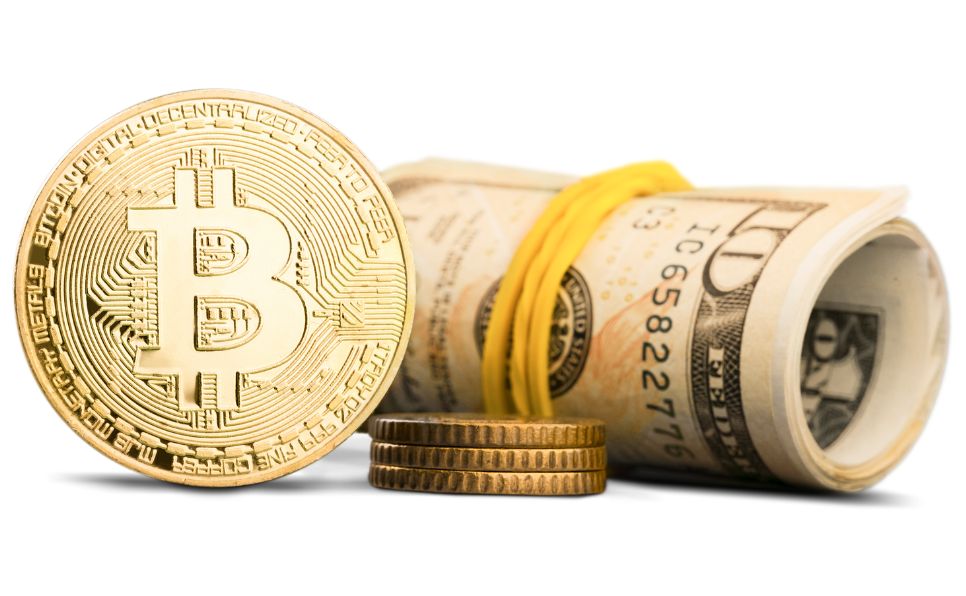As more and more cryptocurrencies hit the market, you may feel confused about the differences and similarities between all of them. Specifically, while you’re looking to buy Bitcoin in Austin, you may notice that Bitcoin Cash is another option around town. But what’s the difference between the two? Our team at RockItCoin takes pride in being a helpful resource in educating our customers about the world of cryptocurrency.
What is Bitcoin?
Let’s start with the basics. Bitcoin is a cryptocurrency that isn’t controlled by any single authority .*Bitcoin and other cryptocurrencies have been hailed as the future of money, and one of the key features that make them so promising is their decentralized nature. Unlike traditional currencies, which are controlled by central authorities like governments and central banks, cryptocurrencies are designed to be decentralized, meaning that they operate without a central authority or intermediary.
In the context of cryptocurrency, decentralization means that the network is not controlled by a single entity, but rather by a network of users who collectively validate transactions and maintain the network’s security. This is achieved through a consensus mechanism (like Proof of Stake or Proof of Work), which ensures that the blockchain agrees on the state of the network and the validity of transactions.
Why Choose Decentralized Banking?
Intermediaries, such as banks or payment processors can be slow, expensive, and prone to errors. With a decentralized system, transactions can be made directly between users, without the need for a trusted third party to facilitate the exchange. Decentralization also makes cryptocurrencies more resistant to censorship and control. Since there is no central authority that can be targeted or shut down, it is much harder to regulate or ban cryptocurrencies.
Obstacles Cryptocurrencies Face
One of the biggest challenges of decentralized systems is scalability, or the ability to handle large volumes of transactions without slowing down or becoming unstable. Bitcoin, for example, can currently process only a few transactions per second, compared to thousands or even millions for traditional payment systems. This is a problem that is being actively worked on by the cryptocurrency community, but it remains a significant obstacle to widespread adoption. Ethereum’s scalability is much greater than Bitcoin’s: using a different consensus mechanism called Proof of Stake makes transaction times much faster on Ethereum’s blockchain. New technology continues to evolve in favor of resolving cryptocurrency’s scalability.
Just like the US Dollar, Bitcoin can be used to buy, sell and trade for goods, services, and investments: cryptocurrency operates in our economy too.
Here are some examples of industries that accept Bitcoin:
- Retail: Retailers online and in person have started accepting Bitcoin as a form of payment for their products.
- Food and beverage: Some restaurants, cafes, and bars have started accepting Bitcoin.
- Gaming: Online gaming platforms and online gaming marketplaces have started accepting Bitcoin as a form of payment.
- Travel: Travel websites and agencies have started accepting Bitcoin as a form of payment for flights, hotels, and other travel expenses.
- Real estate: Some real estate companies and property developers have started accepting Bitcoin as a form of payment for buying and renting properties.
- Online services: Many online services, such as VPN providers, domain registrars, and web hosting services, have started accepting Bitcoin as a form of payment.
- Charity: Some charities have started accepting Bitcoin donations, including UNICEF, Save the Children, and the Rainforest Foundation.
Mining
Bitcoin transactions are tracked using blockchain technology where the transactions are stored and submitted in blocks. Miners compete to solve a complex mathematical problem, known as a proof-of-work problem, to add the block to the blockchain. The first miner to solve the problem gets to add the block to the blockchain and is rewarded with newly minted Bitcoin and transaction fees. Once the block is added to the blockchain, all nodes on the network update their copy of the blockchain to reflect the new transaction. As soon as computers have verified the entire block of transactions, the transaction is verified and the Bitcoin is created.
This process is repeated for each new block, and the blockchain continues to grow with each new block added. By tracking the flow of Bitcoin from one wallet to another and recording it on an immutable ledger, the blockchain network ensures that transactions are secure, transparent, and resistant to tampering or fraud. Anyone can view the blockchain ledger, and each transaction can be traced back to its origin, providing a high degree of transparency and accountability.
What is a Fork?
You now know that the Bitcoin blockchain is a decentralized ledger that records all transactions made on the network. Now you also know that the ledger is maintained by a network of computers, or nodes, that work together to verify and validate transactions. To ensure that all nodes agree on the state of the ledger, the Bitcoin protocol includes a consensus mechanism known as Proof of Work (PoW). This requires nodes to solve complex mathematical puzzles in order to add new blocks to the blockchain.
However, as Bitcoin has grown in popularity and adoption, it has become clear that the original protocol has some limitations. For example, the block size limit of 1MB has made it difficult for the network to scale and handle a large number of transactions. In response, various ideas have been put forward to increase the block size or to introduce other changes to the code. When a group of users or developers decides to make changes to the Bitcoin protocol, they can do so by creating a fork.
There are two types of forks: hard forks and soft forks.
- A hard fork occurs when the changes are so significant that they are incompatible with the existing protocol. This creates a new blockchain that operates independently of the original one. All nodes on the network must upgrade to the new software in order to continue using the network.
- A soft fork, on the other hand, is a backward-compatible upgrade to the code. This means that nodes that have not upgraded to the new software can still operate on the network, but they may not be able to take advantage of the new features.
Bitcoin Cash
One of the most well-known forks of Bitcoin was the creation of Bitcoin Cash in 2017. Bitcoin Cash was created in response to the block size limit issue, and it increased the block size to 8MB, allowing for more transactions to be processed in each block. Another notable fork was the creation of Bitcoin Gold, which aimed to democratize the mining process by making it more accessible to individual users, rather than large powerful mining pools.
A Bitcoin fork is a process by which a new blockchain protocol is created based on the original Bitcoin blockchain. This is done in order to make changes to the protocol that are incompatible with the current version. While forks can be controversial and can create a split in the community, they are an important way for developers and users to experiment with new ideas and improve the overall functionality and scalability of the Bitcoin network.
How Bitcoin Cash is Different
Bitcoin Cash has cheaper transfer fees than Bitcoin in addition to faster transfer times. Plus, Bitcoin Cash can handle more transactions per second, meaning more people can use Bitcoin Cash at once than they can with traditional Bitcoin. It’s much more scalable than traditional Bitcoin is. However, Bitcoin Cash is newer than Bitcoin, so users may not understand its capabilities well enough in order to purchase it.
Both Have Perks
The bottom line? Both Bitcoin and Bitcoin Cash have advantages and disadvantages. You can think of Bitcoin Cash as a faster, cheaper version of Bitcoin. But Bitcoin has established itself as a valuable facet of the cryptocurrency market and continues to grow in adoption since its emergence. When it comes down to it, which one you use is your personal preference!
If you have further questions about how to sell or buy Bitcoin in Austin or surrounding areas, don’t hesitate to get in touch with our team at RockItCoin today.




